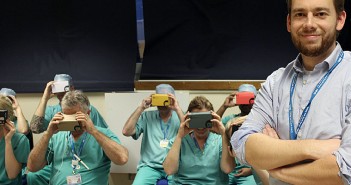
Curation, Copyright and the Law
Editor’s note: This is a practical and pragmatic piece on how to do curation and stay on the right side of copyright law.

Editor’s note: This is a practical and pragmatic piece on how to do curation and stay on the right side of copyright law.
Editor’s note: After a shout-out on Twitter for help finding a history of L&D, Owen Ferguson shared this article which is well researched and referenced piece that shows just how long on the job training has existed.
Editor’s note: This is a long read and very well worth it if you are interested in the history of the concept of information overload and the paradigm shift we need to make to meaning making.
Editor’s note: And another example of how virtual reality is being used by hospitals – this time to provide a learning experience as a part of a live operation.

Editor’s note: Thanks to Kate Graham to pointing to this story on how medical staff at Torbay and South Devon NHS Foundation Trust in the UK are using virtual reality to ‘see’ what being a patient is like.

Editor’s note: Getting territorial about ideas can kill creativity, says this report. The answer is to put as much emphasis on creative feedback and nurturing ideas as the idea itself.

Editor’s note: It would seem that managers’ views of their own capabilities as managers fall well short of what their direct reports think.

Editor’s note: This is great piece by a neuroscientist on why there is so much neuro hype and why we need to be cautious about the claims made on behalf of neuroscience.
Editor’s note: This is a research laden article that shows there is no evidence to suggest Millennials want anything different from work than any other generation.

Editor’s note: This report from Towards Maturity looks at the changing nature of how we work and the implications for L&D.

Editor’s note: Tim Drewitt presents a simple model of behaviours that support social learning, one based on openness, transparency, empowerment and sharing. This seems pragmatic and very positive. Is it achievable?
Editor’s note: New research suggests that running is the most effective form of exercise for the brain versus weight training and interval training.

Editor’s note: According to Yoshie Komuro, the number of Japanese people who work overtime is higher than any other country, but the contributing value of each individual is the lowest among the industrialized countries.

Editor’s note: This question, posed by Jane hart, prompted much Twitter discussion and became the topic of an #ldinsight conversation. Here Jane Hart pulls out highlights from the responses.
Editor’s note: This piece is a couple of years old but nevertheless it is worth sharing and resharing as it includes more research to dispel the right brain, left brain myth.
